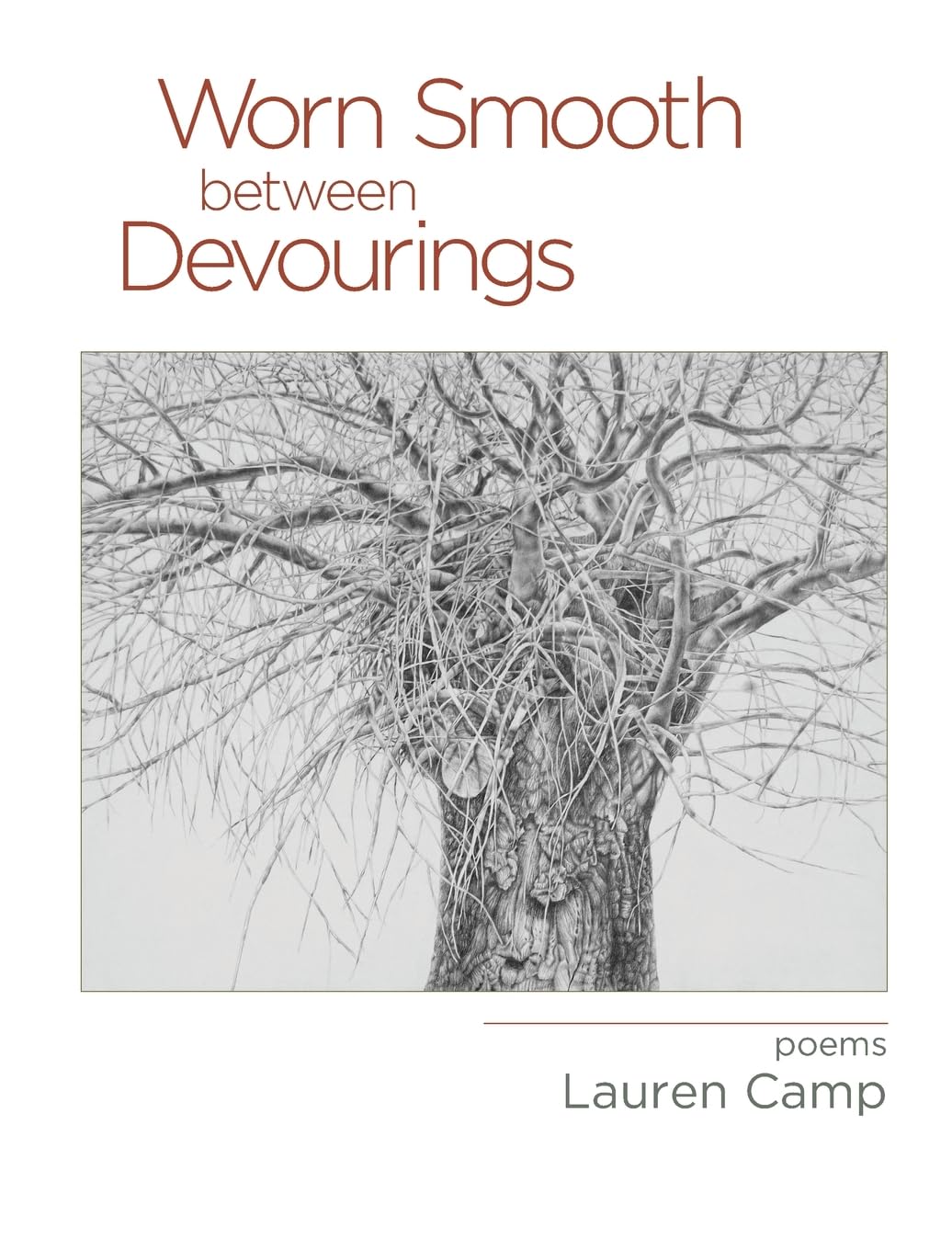Lauren Camp
NYQ Books ($18.95)
by Tiffany Troy
Like the animals that follow the order of nature, humans in Lauren Camp’s latest poetry collection, Worn Smooth between Devourings, follow the order of capitalism—thus, the speaker pays the mortgage “on the trees” and bakes muffins “in the middle of a great / battle we’re having with disappointment.” Readers might identify with that disappointment, which Camp portrays as the overgrowth of weeds, an anathema to a pristine and well-trimmed Victorian garden—a conflict that mirrors the poet’s inner turmoil about needing to pay the bills while wishing for more fulfillment than is allowed service workers, whose fate has been predetermined. Drawing from her own experience, Camp conveys how an unfamiliar landscape paradoxically allows her to become familiar with herself and adopt new ways of seeing.
Throughout the collection, Camp teaches readers how to “tell time” via closeups of personified objects (the “clock at the church kept to its ticking, its bells / with their sticky, poised hope”), and asks us to consider them in the context of the institutions (the church, the workforce) to which they belong. In doing so, she compels us to take a step back and reevaluate the way in which the landscape embodies our deepest longings (“Now I gaze at this / quarrelsome desert: barren / with discipline”). These objects, like the doll in Elena Ferrente’s novel The Lost Daughter, take on a life of their own, their limbs and appendages an extension of the reader’s. Like Ferrante’s protagonist, a middle aged Neapolitan woman who travels abroad and spends the majority of the time on the beach, Camp’s speaker enjoys an environment with a backdrop for free introspection.
The “devourings” in the book’s title refers to ecological concerns as well as the speaker’s personal struggles. Camp invites the reader to think about the body in motion, to see the way the reader must “leave the calendar” of our busy lives “to find sun familiar again,” contrasting a man’s ominous cat whistle with the coyotes “whistling about their beautiful lives.” Wildlife and the desert terrain recur as motifs throughout the book: As the speaker gets acclimated to the solitude of hearing “no one but pages,” and as “every inch / of our property dried out” in the “long stretch of knuckled nerves” of the landscape near her home, she considers the “absolutely unknown” of climate change’s effects. Camp chooses poetic forms that mimic our acculturation to the “slow mountains”; in “the river” we find “a yearning, a small seep, a lowest door” that we can step through so as to see eye to eye with “the mountains’ ashen edges / and ambition.” The powerful suggestion is that we might behold nature not as a metaphor, but in its reality of wildness.
Rain Taxi Online Edition Fall 2024 | © Rain Taxi, Inc. 2024

